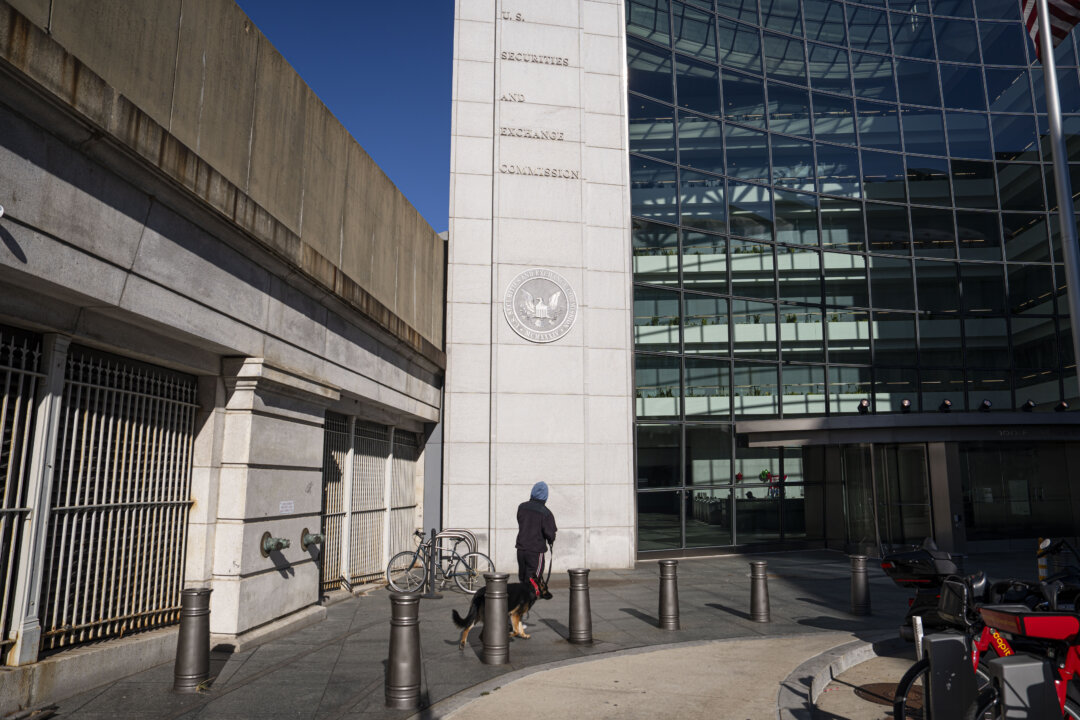These companies ‘are instruments of the Chinese Communist Party’s broader strategy to undermine U.S. interests,’ Rep. John Moolenaar said.
A group of Republican lawmakers is asking the U.S. Securities and Exchange Commission (SEC) to delist some Chinese companies, including the Chinese low-cost online retailer Temu’s owner PDD Holdings, saying that their ties to the Chinese Communist Party (CCP) put U.S. national security at risk.
Led by Rep. John Moolenaar (R-Mich.), chairman of the House Select Committee on the CCP, and Sen. Rick Scott (R-Fla.), chairman of the Senate Special Committee on Aging, the lawmakers sent a letter to SEC Chairman Paul Atkins on May 2, naming 20 Chinese companies that his agency should start delisting.
“These companies are not just commercial entities; they are instruments of the Chinese Communist Party’s broader strategy to undermine U.S. interests,” Moolenaar said in a statement. “The SEC must act decisively to protect American investors and national security.”
The lawmakers said they didn’t provide an “exhaustive list” when naming the companies.
“It reflects only a subset of PRC-based firms accessing U.S. capital while serving a genocidal dictatorship and our foremost geostrategic rival,” the lawmakers wrote.
The lawmakers explained that the 20 companies shared one or more of the same characteristics: having been subjected to U.S. government restrictions, maintaining hidden Party mechanisms, secretly supporting Chinese military applications, and being connected to slave labor.
Regarding U.S. government restrictions, the letter named light detection and ranging solutions (LiDAR) company Hesai, fintech company Qifu Technology, music streaming company Tencent Music, and photovoltaics company Daqo New Energy.
Tencent Music’s parent company, Tencent Holdings, Qifu Technology’s parent company, Qihoo 360, and Hesai are on the Pentagon’s list of Chinese military companies.
The U.S. Commerce Department placed Daqo New Energy on its entity list in June 2021 over forced labor allegations in China’s far-western region of Xinjiang.
The 20 companies also include Chinese conglomerate Alibaba Group Holding, online retail platform JD.com, search engine Baidu, social media platform Weibo, electric vehicle manufacturer Zeekr, and autonomous driving company WeRide.
According to the letter, Alibaba has a party committee within the company, and its cloud division works with two Pentagon-designated Chinese military companies, Global Tone Communication Technology and China North Industries Group Corporation. Additionally, Alibaba has created facial recognition technology to identify ethnic Uyghurs and played a role in the sales of products associated with forced labor.
Zeekr has a smart factory “serving as a CCP training and propaganda base for ideological education, career grooming, and university-enterprise integration,” the letter states. What’s more, Zeekr is tied to China’s military-civil fusion and has sold more than 1,000 sedans to the People’s Liberation Army.
The U.S. State Department states on its website that China wants to become the first nation to transition to “intelligence warfare” via military-civil fusion, a strategy that includes theft to acquire advanced technologies such as quantum computing, artificial intelligence, aerospace technology, semiconductors, and big data.
“Under Beijing’s model of military-civil fusion, data, capital, hardware, and research—no matter how commercial on the surface—are ultimately harnessed for nefarious state purposes,” the lawmakers wrote. “Those purposes include surveillance, repression, and, in the event of a military conflict, operations aimed at defeating the American military and killing our service members.
“The SEC can—and must—act.”
The lawmakers said the SEC had the necessary authority under the Holding Foreign Companies Accountable Act to “suspend trading and compel delisting by suspending or revoking the registration of the securities of Chinese companies that do not adequately protect American investors.”
As of March 7, there were 286 Chinese companies listed on the New York Stock Exchange (NYSE), Nasdaq, and NYSE American, according to the U.S.-China Economic and Security Review Commission.
Other lawmakers who have signed the letter include Reps. Rob Wittman (R-Va.), Andy Barr (R-Ky.), Darin LaHood (R-Ill.), Gus Bilirakis (R-Fla.), Dan Newhouse (R-Wash.), Ashley Hinson (R-Iowa), Nathaniel Moran (R-Texas), and Sen. Jim Justice (R-W.Va.).

